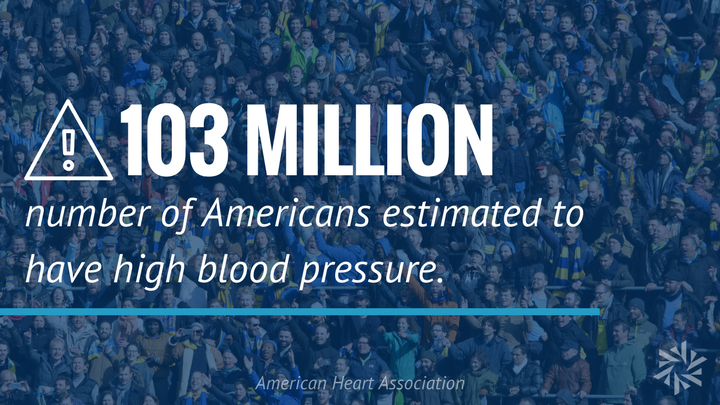February is Heart Health Awareness Month so we’ve gathered 15 simple tips to share with your employees to encourage and inspire heart-healthy lifestyles. Many heart-related conditions can be better managed with proper lifestyle changes and support from employers is a win-win. You can also check out our additional tips for Heart-Healthy activities in the office here.
More Green Tea, Please
Some like it hot, some like it cold… No matter how you drink it, green tea contains powerful antioxidants that lower cholesterol and can even lower blood pressure, making it the perfect drink to sip on throughout the day!
Fats: Check it Out!
When shopping for groceries, be sure to scan the food labels and nutrition facts, to lower saturated fat consumption and avoid trans fats. Try replacing these with foods containing monosaturated fat (from olive oil, nuts, dark chocolate, and avocados) and polyunsaturated fat (from salmon, flaxseed, walnuts).
Fiber First!
Studies have shown the more fiber you eat, the less likely you are to have a heart attack. Load up on whole grain breads and cereals that contain whole wheat, wheat bran, and oats. Other foods high in fiber include raspberries, pears, apples, beans, lentils and green vegetables.
Something Fishy
Fish, such as salmon and anchovies, are loaded with the omega-3 fatty acids that help your heart maintain a steady rhythm. Having even one serving of fish high in omega-3s a week could reduce your risk of death from a heart attack by 52%! If fish isn’t your thing, look for enriched dairy products that include Omega-3’s on the label as they are likely fortified with fish oil.
Morning Juice
Orange juice contains folic acid that helps lower your levels of homocysteine, an amino acid linked to a higher heart attack risk. Grape juice is loaded with flavonoids and resveratrol, both potent antioxidants that may discourage red blood cells from clumping together and forming an artery-blocking clot. Choose 100% fruit juices to limit excess sugar.
Stop Drinking Your Calories.
Cutting out just one sugar-sweetened soda or calorie-laden latte can easily save you 100 or more calories a day. Over a year, that can translate into a 10-pound weight loss.
Go Nuts!
Studies have found that those who eat more than five ounces of nuts a week are one-third less likely to have either heart disease or a heart attack. Just don’t overdo it—nuts are high in fat and calories, which can pack on pounds if you inhale them by the fistful.
Get Moving!
You don’t have to sign up for the next triathlon, or train like an Olympian, but just a little over 20 minutes of exercise a day can reduce your risk of a heart attack by 1/3 and help eliminate type 2 diabetes.
Start or End Your Day with Stretching
According to a recent Japanese study, stretching for 10 to 15 minutes a day to improve your flexibility will help keep your arteries pliable; as they can be affected by the elasticity of the muscles and tissue that surround them.
Count Sheep for a Better Nights’ Sleep
Getting a full 7-8 hours of sleep each night reduces your risk of coronary artery calcification, one of the leading causes of heart disease. When you are even a little sleep deprived, your body releases stress hormones, which can constrict arteries and cause inflammation.
Cut Back on Cutting Loose
Don’t forget, alcohol contains calories. Regularly drinking more than recommended can have a noticeable impact on your waistline. To avoid serious health problems and lower heart health risks, try to stick to the recommended daily alcohol limits.
Assess Your Stress
Take time out of your busy routine to identify stressors in your life. Confronting stressful situations and challenges head on with a positive attitude can play a significant role in decreasing risks to your cardiovascular health.
Breathe Deeply
Taking a few minutes out of the day to breathe slowly and deeply can help you relax and be instrumental in lowering your blood pressure. There are many apps available to help you master the art of deep-breathing and other relaxation techniques – check out our app recommendations for ideas.
Smoke-Free is the Way to Be
Smoking is one of the leading causes of coronary heart disease. Even brief (minutes or hours) exposure to secondhand smoke can have long-term cardiovascular effects nearly as great as active smoking. Kicking the habit, and avoiding others when they light up are the best ways to keep your heart healthy and disease free!
Achieve and Maintain a Healthy Weight
Having a healthy body mass index (BMI) lowers your risk of developing diabetes and helps lower your blood pressure and cholesterol. Find out your BMI using this website.

For even more wellness tips and free materials, check out our Benefits Resource Center. For expert advice on corporate wellness programs and strategy, contact Austin Benefits Group.
Resources:
https://www.heartfoundation.org.au/your-heart/keep-your-heart-healthy
https://www.prevention.com/health/health-concerns/lower-your-risk-of-heart-disease-in-28-days
https://www.nhs.uk/Livewell/Healthyhearts/Pages/Healthy-heart-tips.aspx
https://www.health.harvard.edu/healthbeat/reduce-your-stress-to-protect-your-heart
https://pdfs.semanticscholar.org/f22f/092af131bae304842e50fd06608cf2631404.pdf



